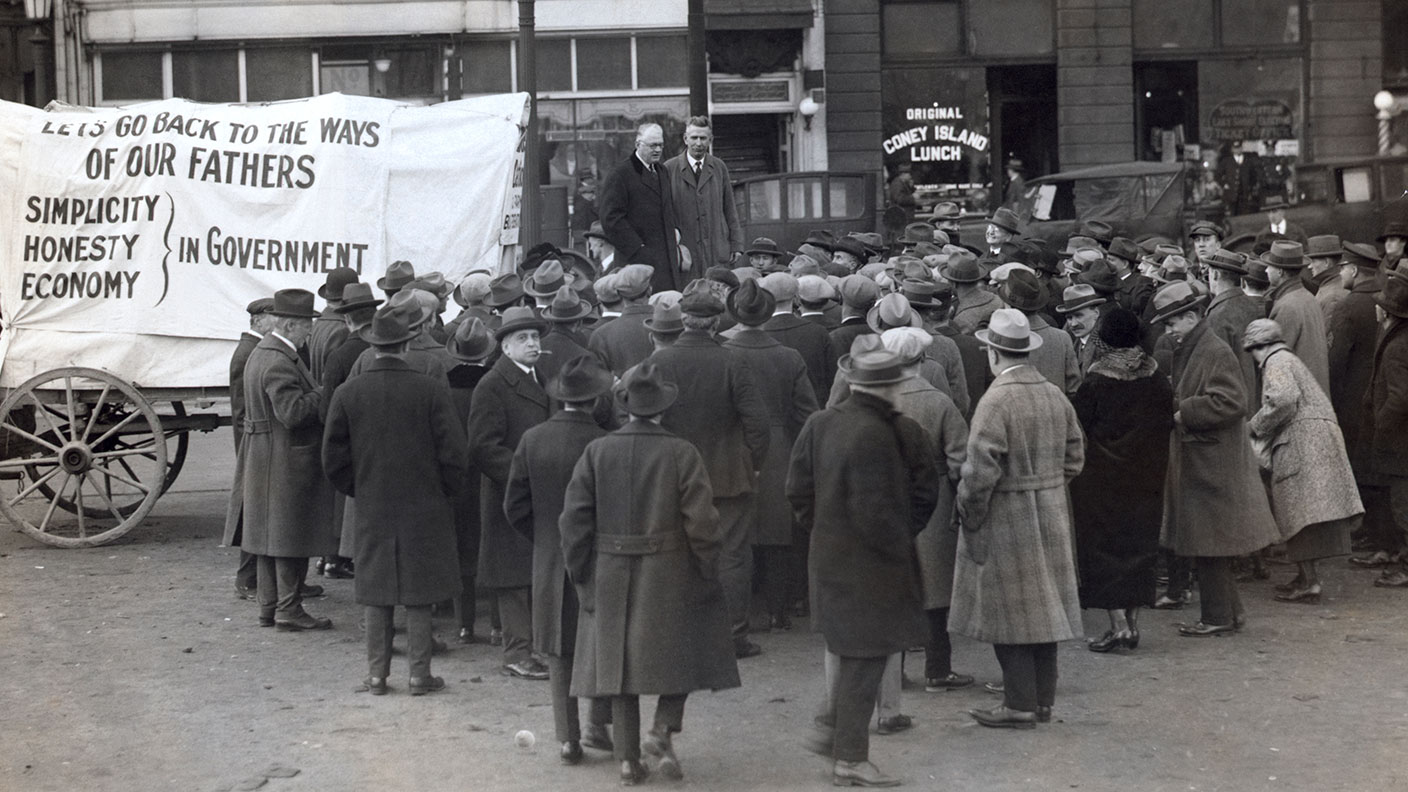6 November 1928: Herbert Hoover elected US president
On this day in 1928, Herbert Hoover won the US presidential election, ushering in an era of disastrous economic policies.


Get the latest financial news, insights and expert analysis from our award-winning MoneyWeek team, to help you understand what really matters when it comes to your finances.
You are now subscribed
Your newsletter sign-up was successful
Want to add more newsletters?

Twice daily
MoneyWeek
Get the latest financial news, insights and expert analysis from our award-winning MoneyWeek team, to help you understand what really matters when it comes to your finances.

Four times a week
Look After My Bills
Sign up to our free money-saving newsletter, filled with the latest news and expert advice to help you find the best tips and deals for managing your bills. Start saving today!
In a recent poll of American historians, Herbert Hoover was ranked as the seventh-worst president. However, in early life, he was extremely successful.
He was born in 1874; by the age of 40 he had accumulated a fortune of $4m through setting up his own mining consultancy. During World War I he threw himself into humanitarian work, organising food relief for occupied Belgium and helping the post-war recovery.
He was so popular that members of both parties encouraged him to run for president. He failed to become the Republican candidate, but in 1920 was appointed secretary of commerce by then-president Warren Harding. He used the post to try to improve industrial safety and labour relations.
MoneyWeek
Subscribe to MoneyWeek today and get your first six magazine issues absolutely FREE

Sign up to Money Morning
Don't miss the latest investment and personal finances news, market analysis, plus money-saving tips with our free twice-daily newsletter
Don't miss the latest investment and personal finances news, market analysis, plus money-saving tips with our free twice-daily newsletter
In November 1928, he became president in a landslide victory over Democrat Al Smith. Unluckily for Hoover, he came to office as a credit-fuelled boom was ending. The September 1929 stockmarket crash heralded the unravelling of the financial system. But his decision to sign the protectionist Smoot-Hawley Act didn't help, leading to a global trade war. And his efforts to stop firms from cutting wages or prices saw them slash production instead.
His insistence on a balanced budget further hit demand, turning recession into brutal depression. While his wartime humanitarian efforts saw the Finns add the word "Hoover" to their language, the slums that sprung up around major American cities became known as "Hoovervilles".
Hoover lost the 1932 presidential election to Franklin Roosevelt, and left the White House in March 1933 with unemployment at 25.6% and large numbers of American banks on the brink of collapse.
Get the latest financial news, insights and expert analysis from our award-winning MoneyWeek team, to help you understand what really matters when it comes to your finances.

-
 Should you buy an active ETF?
Should you buy an active ETF?ETFs are often mischaracterised as passive products, but they can be a convenient way to add active management to your portfolio
-
 Power up your pension before 5 April – easy ways to save before the tax year end
Power up your pension before 5 April – easy ways to save before the tax year endWith the end of the tax year looming, pension savers currently have a window to review and maximise what’s going into their retirement funds – we look at how
-
 31 August 1957: the Federation of Malaya declares independence from the UK
31 August 1957: the Federation of Malaya declares independence from the UKFeatures On this day in 1957, after ten years of preparation, the Federation of Malaya became an independent nation.
-
 13 April 1960: the first satellite navigation system is launched
13 April 1960: the first satellite navigation system is launchedFeatures On this day in 1960, Nasa sent the Transit 1B satellite into orbit to provide positioning for the US Navy’s fleet of Polaris ballistic missile submarines.
-
 9 April 1838: National Gallery opens in Trafalgar Square
9 April 1838: National Gallery opens in Trafalgar SquareFeatures On this day in 1838, William Wilkins’ new National Gallery building in Trafalgar Square opened to the public.
-
3 March 1962: British Antarctic Territory is created
Features On this day in 1962, Britain formed the British Antarctic Territory administered from the Falkland Islands.
-
10 March 2000: the dotcom bubble peaks
Features Tech mania fanned by the dawning of the internet age inflated the dotcom bubble to maximum extent, on this day in 2000.
-
9 March 1776: Adam Smith publishes 'The Wealth of Nations'
Features On this day in 1776, Adam Smith, the “father of modern economics”, published his hugely influential book The Wealth of Nations.
-
 8 March 1817: the New York Stock Exchange is formed
8 March 1817: the New York Stock Exchange is formedFeatures On this day in 1817, a group of brokers moved out of a New York coffee house to form what would become the biggest stock exchange in the world.
-
7 March 1969: Queen Elizabeth II officially opens the Victoria Line
Features On this day in 1969, Queen Elizabeth II took only her second trip on the tube to officially open the underground’s newest line – the Victoria Line.